This article was co-authored by Claudia Carberry, RD, MS. Claudia Carberry is a Registered Dietitian specializing in kidney transplants and counseling patients for weight loss at the University of Arkansas for Medical Sciences. She is a member of the Arkansas Academy of Nutrition and Dietetics. Claudia received her MS in Nutrition from the University of Tennessee Knoxville in 2010.
There are 10 references cited in this article, which can be found at the bottom of the page.
This article has been viewed 23,486 times.
Enjoying cholesterol-friendly desserts is possible if you make informed and mindful choices. According to the Cleveland Clinic, the cholesterol in baked goods comes mostly from dairy, eggs, and shortening.[1] Luckily, there are lots of heart-healthy substitutions for these foods! Be sure to reduce baking times and temperatures when lowering the fat content of your recipes. Choose vegan dessert options for guaranteed cholesterol-free treats by looking up vegan recipes, visiting a vegan bakery, and downloading vegan-friendly apps.
Steps
Baking Without Cholesterol
-
1Use a cholesterol-free egg substitute. To remove cholesterol from dessert recipes while baking, substitute for the eggs with a cholesterol-free alternative. A whole, regular egg has 210 milligrams of cholesterol, while egg whites and egg substitutes (e.g. Egg Beaters) contain none. Eggs generally serve as the binding agent in recipes and must be replaced in specific ratios.
- One large egg should be replaced by two large egg whites or 1/4 cup of egg substitute.
-
2Replace fats with fruit purees. Fruit purees can be a sweet, light substitute for fats in recipes, such as butter and shortening. Fats usually add moisture to baked desserts, which results in a lighter, finer texture. Apple sauce and pureed, canned pears are good alternatives that do not significantly alter the taste or appearance of your baked goods.
- Replace fats cup-for-cup with fruit purees.
- Keep in mind that even though vegetable oils contain fats, they don't have cholesterol.
Advertisement -
3Use banana in recipes. Mashed banana can be used to replace eggs in recipes (1/2 cup for 1 egg) to lower cholesterol. Bananas also add sweetness, bind the mixture, and provide potassium and magnesium. Note that bananas will lend their distinct flavour to the recipe, so make sure this addition will work in your dessert.[2]
-
4Include soy-based products in your baking. Soy protein is a good alternative for many foods that are high in animal fats.[3] Whenever possible, use soy as a substitute for its cholesterol-heavy counterparts in dessert recipes. For instance:
- Substitute soy nut butter for butter
- Use soy milk instead of regular milk
- Use soy cheese in place of regular cheese.
-
5Lower baking times and temperature. Low-cholesterol recipes are often likely to bake faster than regular recipes because of the lower fat content. Try lowering the recommended temperature of the oven by 25 degrees, and start checking your dessert 5–10 minutes before it should be done baking. Check your baked goods for lightly browned edges or a springy texture to make sure they are done.
Opting for Vegan Desserts
-
1Look up vegan dessert recipes. Vegan, plant-based diets are inherently cholesterol-free given that they lack animal or animal-derived foods which are usually a high source of cholesterol (e.g. meat, egg yolk, dairy fats.) Look up vegan dessert recipes for guaranteed cholesterol-free options. Visit the One Green Planet website at http://www.onegreenplanet.org/tag/vegan-dessert-recipes for a large assortment of recipes including cake, cookies, dessert squares, and pudding.[4]
-
2Enjoy fruit as dessert. Fruit is an excellent, cholesterol-friendly choice for dessert. Visit your local grocer or farmer's market to buy fresh fruit to eat as it is (e.g. clementines), or add to a fruit salad (e.g. cherries and melon). Fruit can also be baked, roasted, grilled, frozen, or cooked with few extra ingredients to make desserts such as:
- Baked pears
- Applesauce
- Grilled pineapple
- Chocolate covered frozen bananas
-
3Choose desserts with nuts. Certain types of nuts have cholesterol fighting properties. These nuts include macadamia nuts, almonds, cashews, walnuts, and pine nuts. Given their high fat content, it is better to consume them in moderation (approximately an ounce a day).[5]
-
4Visit a vegan bakery. To really indulge in cholesterol-friendly, vegan desserts, visit a vegan bakery to buy a plant-based treat. Vegan-friendly diet choices are rising in popularity, and with more people aiming to move away from meat and milk ingredients, vegan businesses are on the rise as a result. To find a vegan bakery near you, visit VegGuide.org, a community-based website listing veg-friendly eateries around the world.[6]
-
5Download vegan-friendly apps. To help you stick to vegan dessert choices, download apps that support the lifestyle. Apps can provide vegan recipes, help you search for vegan-friendly businesses, or help you identify vegan products. Some good apps to start with include:
- Food Monster by One Green Planet, a free app for both Android and iPhone that provides over 500 free vegan recipes.[7]
- Happy Cow, an app for both Android and iPhone that outlines vegetarian and vegan eateries, stores, or bakeries near you.[8]
- Is It Vegan?, a free app that allows you to scan the UPC barcode on the package of any food or beverage product to see if it’s vegan.[9]
-
6Ask servers for information. When ordering dessert at a restaurant or cafe that isn't specifically vegan, ask your server about the dessert ingredients. To determine if there are any cholesterol-friendly options available, inquire about what dessert options contain butter, cream, or eggs, all of which should be avoided.
Warnings
- Keep in mind that cholesterol-free desserts can still lead to weight gain. One of the best ways to reduce your cholesterol level is to lose weight, so make sure you limit how many desserts you're eating in general and exercise for at least 150 minutes per week.⧼thumbs_response⧽
References
- ↑ https://health.clevelandclinic.org/high-cholesterol-foods-to-eat-and-avoid/
- ↑ https://www.kidswithfoodallergies.org/egg-allergy-recipe-substitutions.aspx
- ↑ https://www.health.harvard.edu/staying-healthy/soy-protein-helps-lower-bad-cholesterol-a-small-but-important-amount
- ↑ http://www.diagnosisdiet.com/food/cholesterol/
- ↑ https://www.sciencedaily.com/releases/2021/08/210830081805.htm
- ↑ http://www.foodnavigator-usa.com/Markets/Vegan-is-going-mainstream-trend-data-suggests
- ↑ https://itunes.apple.com/us/app/food-monster-5000+-recipes./id1052988561
- ↑ https://play.google.com/store/apps/details?id=com.hcceg.veg.compassionfree
- ↑ https://play.google.com/store/apps/details?id=net.isitvegan.androidfree
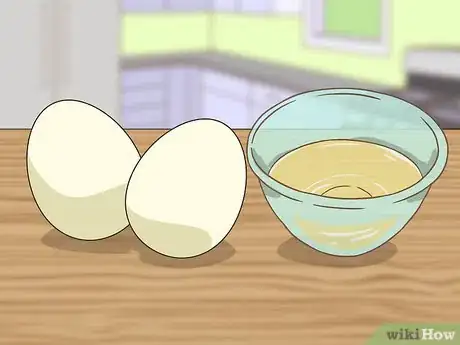
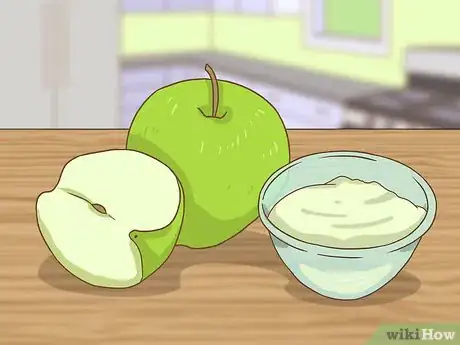
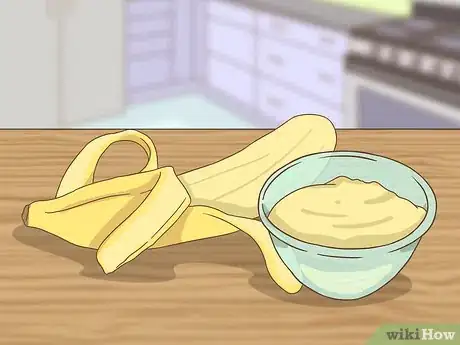
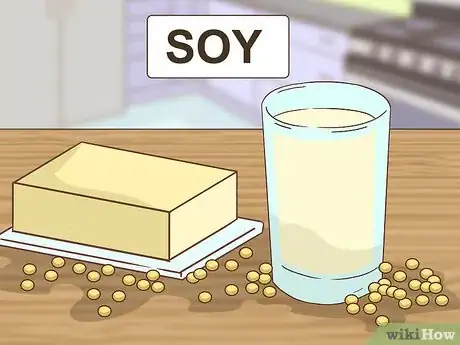


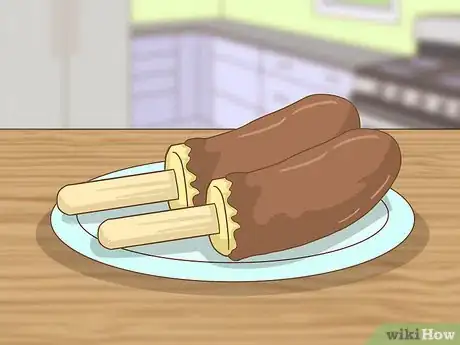
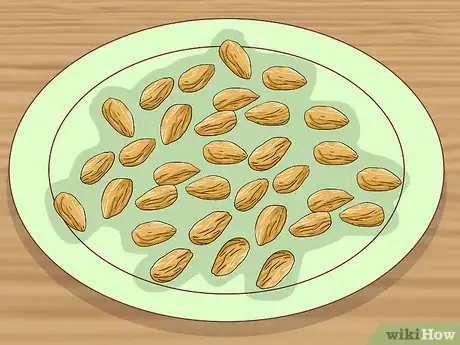
























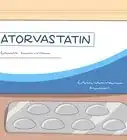






































Medical Disclaimer
The content of this article is not intended to be a substitute for professional medical advice, examination, diagnosis, or treatment. You should always contact your doctor or other qualified healthcare professional before starting, changing, or stopping any kind of health treatment.
Read More...